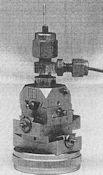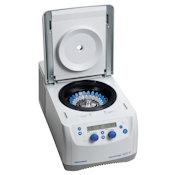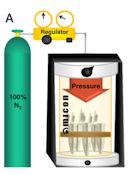
Current Research
We combine drug discovery and mechanistic analysis to understanding protein kinases. WNK kinases are our main focus because they are amazing. WNK kinases are drug targets for hypertension and triple negative breast cancer. We used high throughput screening to identify new classes of inhibitors. Docking and crystallography is used to assess inhibitor binding modes. We collaborate with Uttam Tambar in the Biochemistry Department in cycles of design and synthesis. Presently, we have sub-micromolar inhibitors of WNK1.
Genetic links of WNKs to hypertension and hypotension led us to inquire if WNKs are regulated by hydrostatic pressure. We found that we could mix WNK kinase with ATP, apply small amounts of pressure, and Voila! The WNKs autophosphorylate and become active. These experiments are a lot of fun. Many experiments are being done with x-rays, small angle x-ray scattering, NMR, and mass spectrometry. WNKs from fish (that live under pressure) are being studied.
WNKs also regulate transepithelial transport. We collaborate with Aylin Rodan in the University of Utah who studies WNK regulation by ions, including chloride, potassium, and sodium. We are determining binding sites. WNKs may work neuronally to establish set points for blood pressure and cell volume. We look forward to addressing these questions in collaboration with Dr. Rodan's group. In short, we are establishing that WNK kinases are homeostats of cellular ions, volume, and pressure.
New projects concerning WNKs
- Pressure studies-- autophosphorylation under pressure.
- Crystallization of WNK isoforms
- Using the pressurized goniostat
- Screen for pressure sensitive mutants by effects on cell volume
- Inhibitor screens
Pressure Devices Being Used
 Goniostat
Goniostat  Microfuge
Microfuge  Nitrogen Gas
Nitrogen Gas